How to Know When an Old Wood Floor Is Worth Restoring or Should Be Replaced
Original wood floors can be one of the most striking features of a brownstone or townhouse, especially if they have intricate parquet or borders.

Original wood floors can be one of the most striking features of a brownstone or townhouse, especially if they have intricate parquet or borders. But many wood floors have suffered years of neglect, been oversanded or covered with new flooring like tile or linoleum. So how do you know when your original wood floor is worth saving?
“If I see there’s enough wood left over so we can do a medium or fine sandpaper, I usually try to save it,” said Jose Zambrano of Better Wood Floors and Paints. “I’m not the kind of person who likes to dispose of wood.”
Brownstone owners often call upon Zambrano to repair original parquet floors because he collects and saves old pieces of inlay borders. In cases where the original floor is missing or unsalvageable, he often sands and refinishes the original pine subfloors.
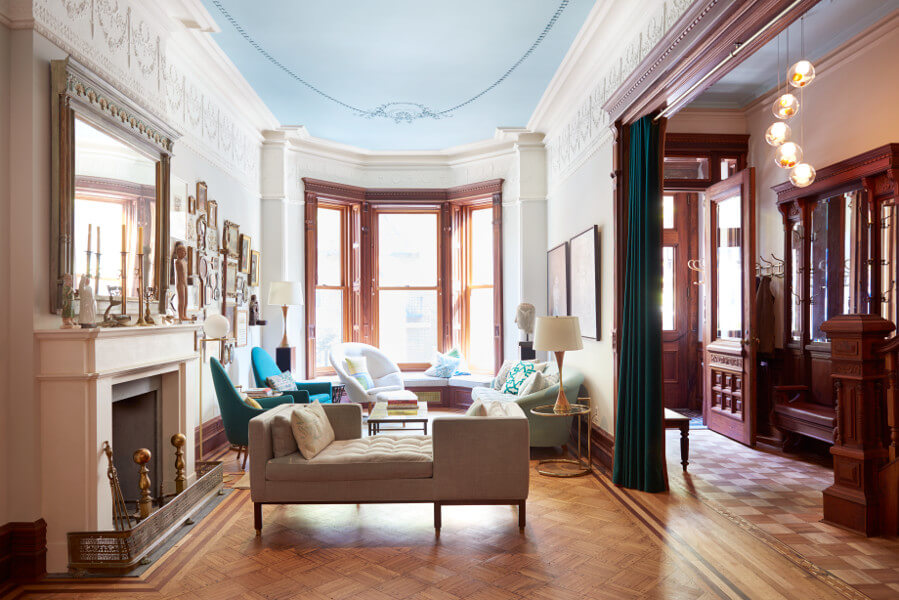
“We sand those all the time, but that’s considered soft wood, so the tongue starts splitting from the groove,” Zambrano said. “So the last sanding has to be at least three or four coats of poly(urethane) so it can last for 25 years, depending on the condition. Every house has a different story.”
While many homeowners are tempted to sand and refinish wood floors themselves, Zambrano said it is not a DIY project.
“I’ve been to places where people have gone to Home Depot and rented machines and gone back and forth over the floor,” Zambrano said. “This is not just a thing where you can go to Home Depot because most likely you’re going to destroy your own house. It takes some skill to do this kind of work. You can’t just go on YouTube and do it. It took me years to learn how to sand all these different types of wood.”
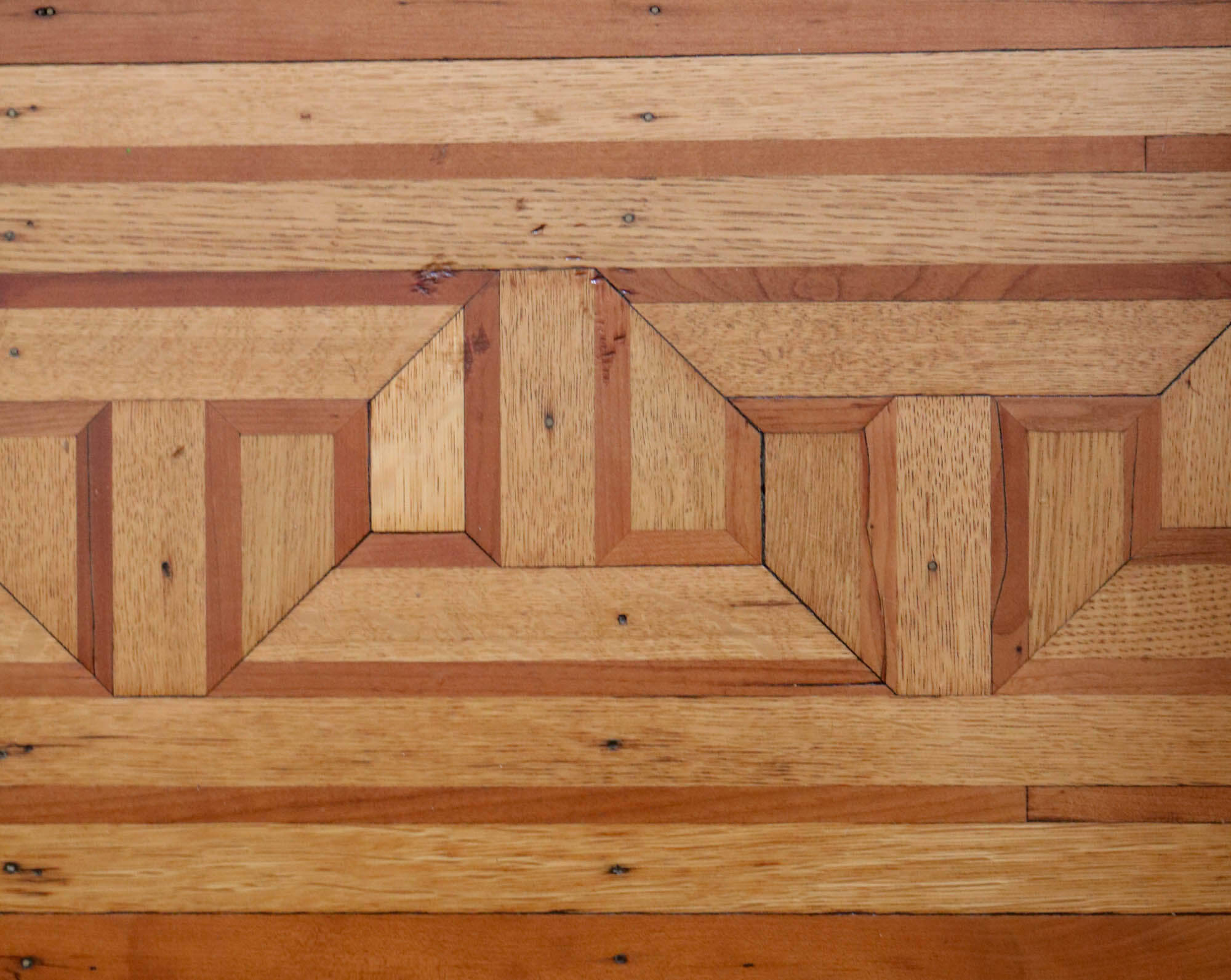
Homeowners have several options when the original floor is beyond repair, said Craig Margolies of the Hudson Company, a mill that specializes in reclaimed wood flooring. Reclaimed pine can be sanded and used to re-create the look and feel of old subfloors, new parquet with borders can blend in seamlessly with a brownstone, or unfinished wide-plank oak flooring will give a more modern townhouse a Scandinavian feel.
“Generally repairing a floor will be cheaper than replacing it,” Margolies said. “But over time it’s an investment. Any new wood floor would outlive all of us. Repairs to a floor are pretty invasive to a space and any floor work creates dust. You only have a few moments in a floor’s life where it can be addressed, so sometimes taking a deep breath and replacing it can be the right move.”
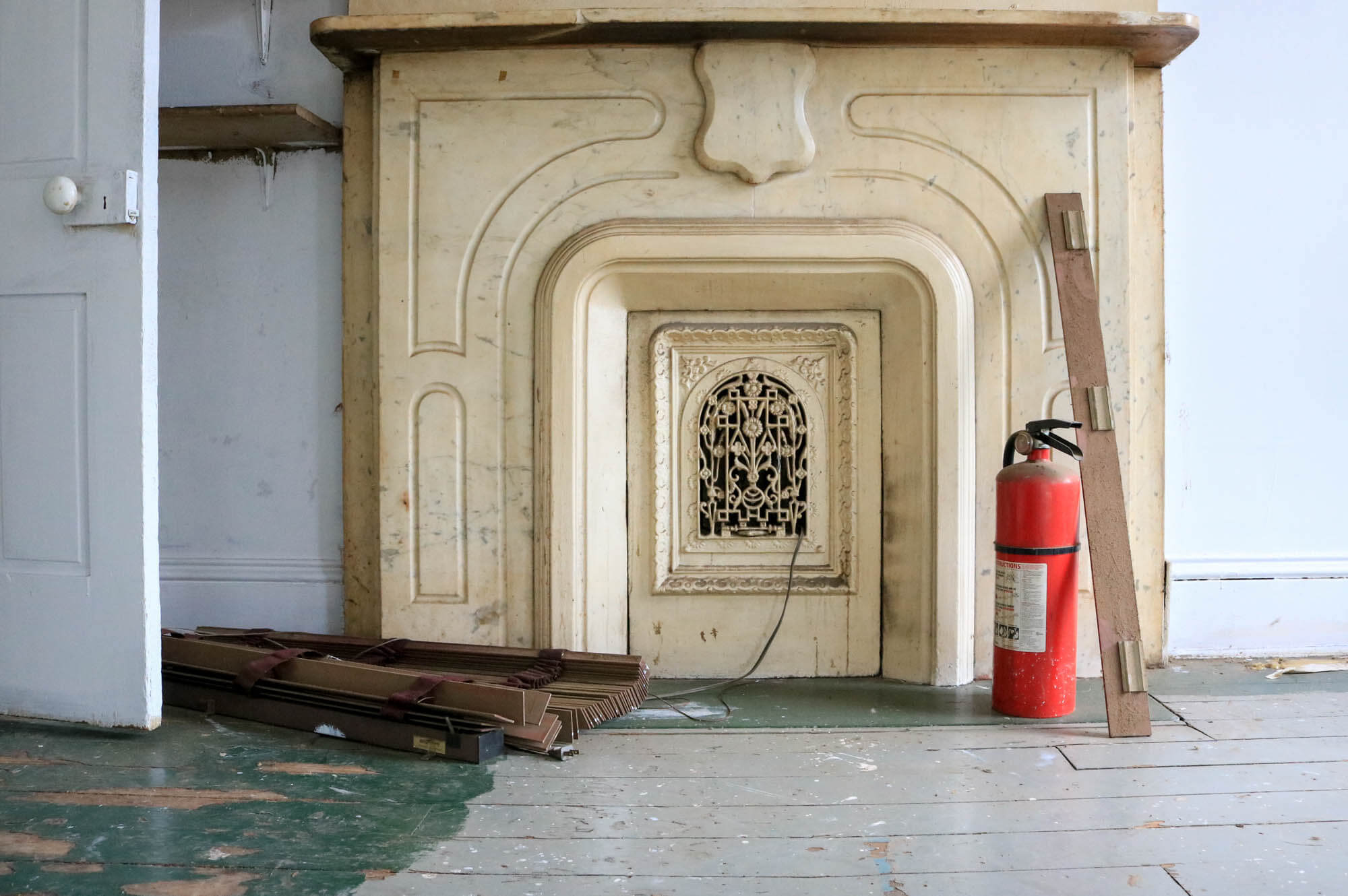
Carlos Salazar, of Carlos Wood Floors, said he’s seen a trend in recent years toward new wood flooring, as opposed to patching and repairing old floors. Salazar said the most popular type of flooring is 4- to 6-inch oak, and customers opt to stain it a dark color about half the time.
“Two or three years ago people tried to save, but now the people want to do a new floor,” Salazar said. “In my experience in the last two years in Brooklyn people mostly want to do new floors.”
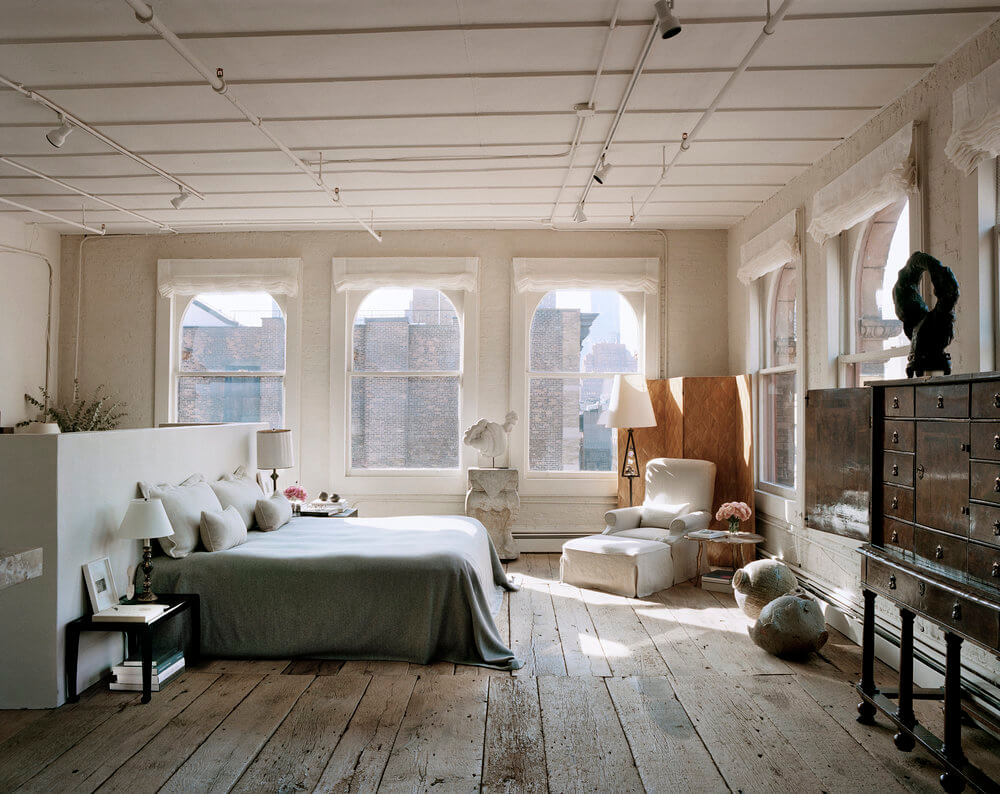
Clinton Hill homeowners Nicole Sherwood and her husband weren’t sure whether the wood floor in their front hallway could be saved after being covered with linoleum by previous owners. The adhesive from the tiles had eroded parts of the floor below it, and there was water damage from an old radiator. A contractor encouraged them to replace it.
But Zambrano, who was refinishing the floors in the rest of the house, urged the couple to have them sanded.

“He sanded it and it looked amazing but we were missing a lot of pieces,” Sherwood said. She was quoted a price of several thousand dollars to replace all the missing pieces with new ones. And, at first, Zambrano could not find the matching pieces in his shop.
“We lost hope and then all of a sudden he found them and brought them over and installed them,” Sherwood said. “We saved significantly for the whole hallway, to refinish and replace, as opposed to having to buy all new hardwood flooring.”

On the other hand, a Park Slope family opted to replace the existing oak floors in their townhouse with a new oak floor in a medium brown finish.
“We had all the walls ripped out and put in new walls and so much of the floor would have had to be patched and the quality of the oak wasn’t good enough,” said one of the homeowners, Rachel, who asked to use only her first name. “It would have been too much work and it was cheaper just to put down all new floors.”
“I chose medium brown because it wasn’t trendy and I wanted something that wouldn’t go out of style,” she added. “With permanent fixtures I always like to be as timeless as possible.”
Businesses Mentioned Above
Related Stories
- Sunset Park’s Roll & Hill Switches On the Brooklyn Lighting Design Scene
- Guide to Choosing a Stair Runner, Brooklyn Townhouse Edition
- Not Sure About Recessed Lighting? Designers Explore How to Light a Brownstone
Email tips@brownstoner.com with further comments, questions or tips. Follow Brownstoner on Twitter and Instagram, and like us on Facebook.

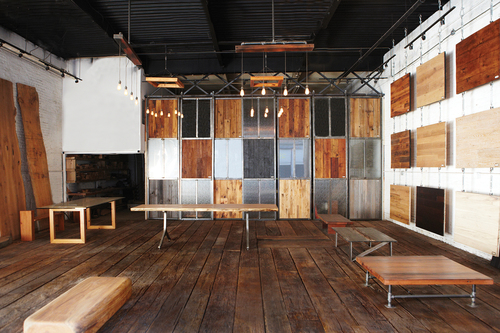

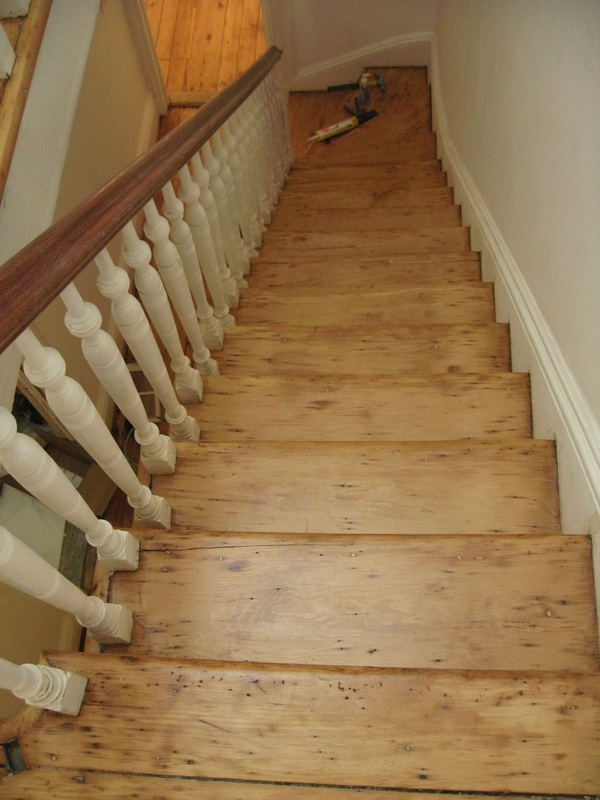
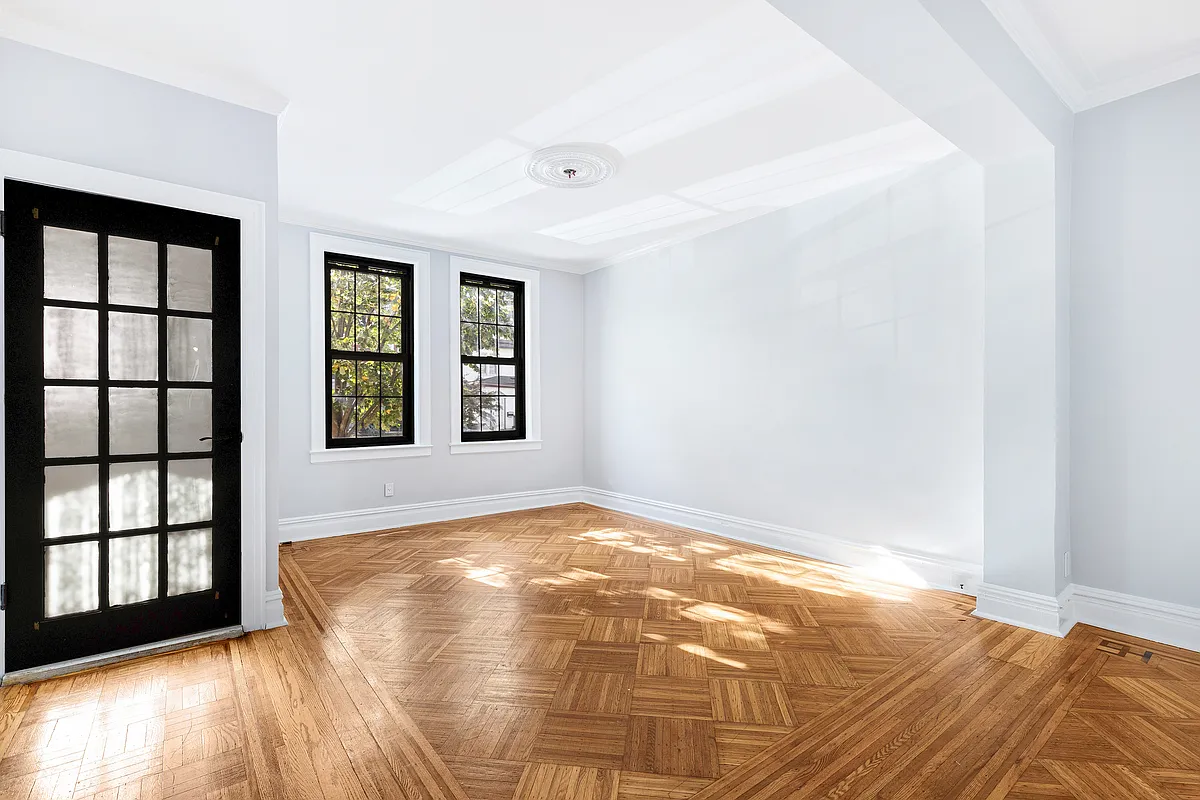
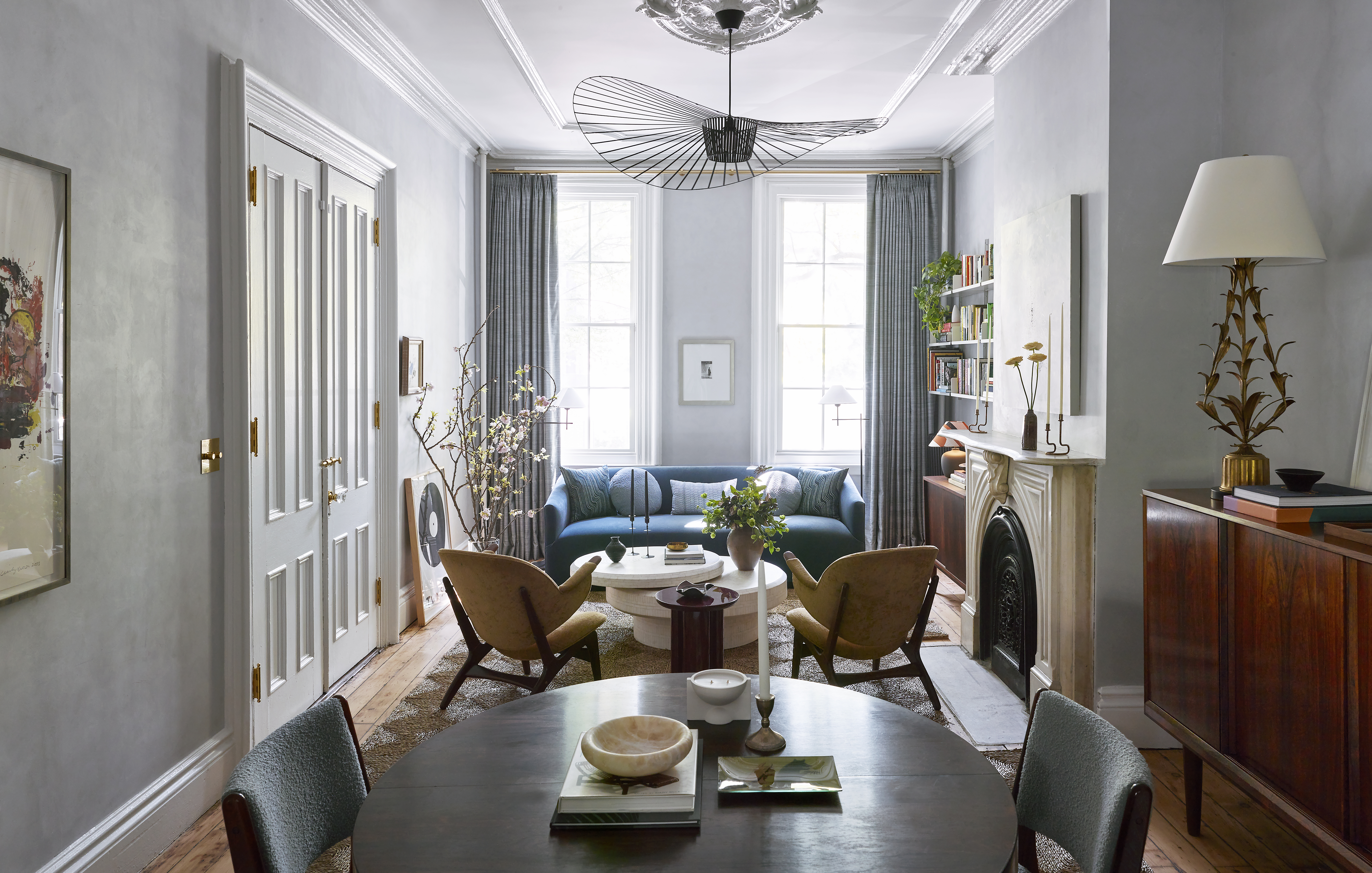
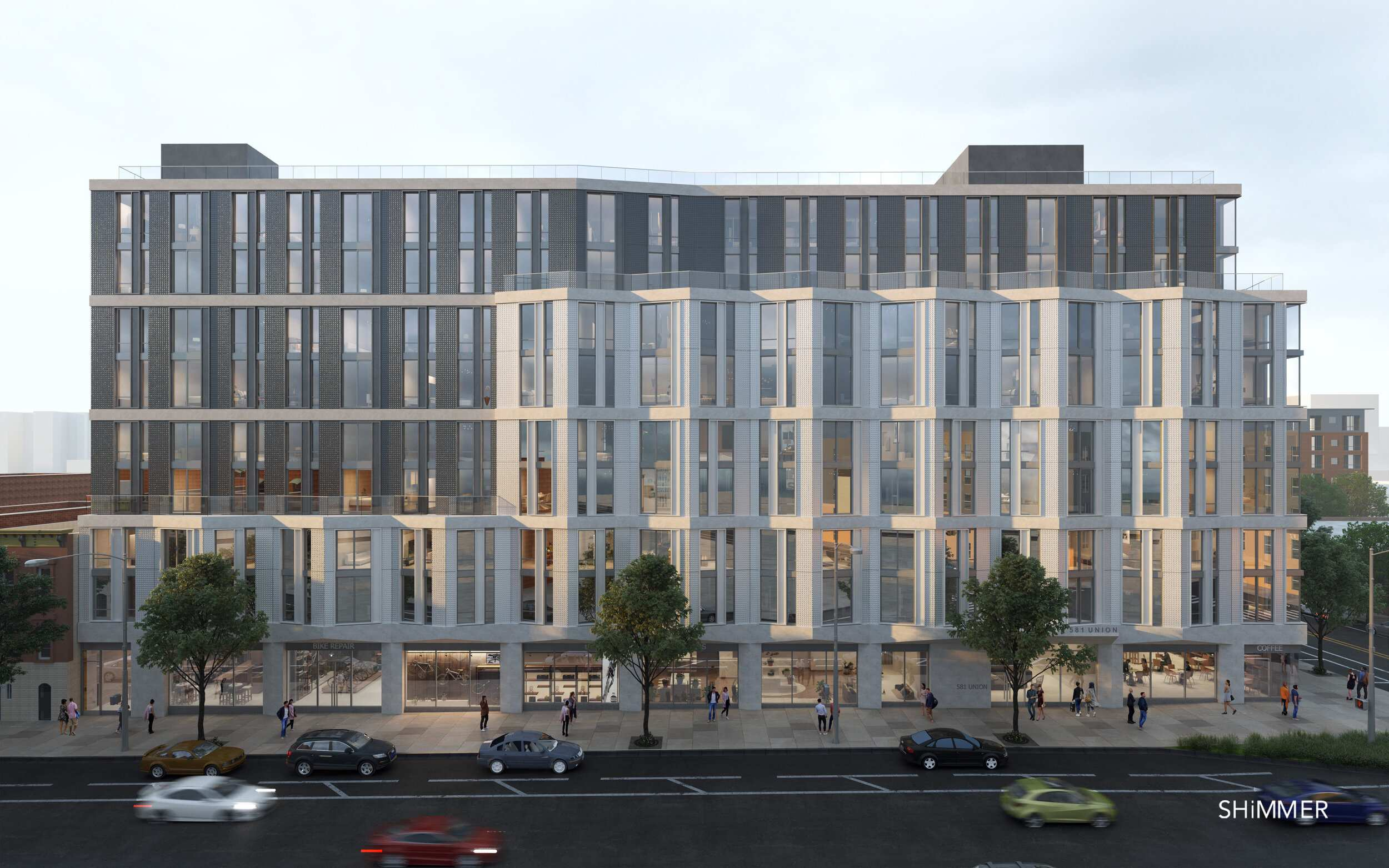
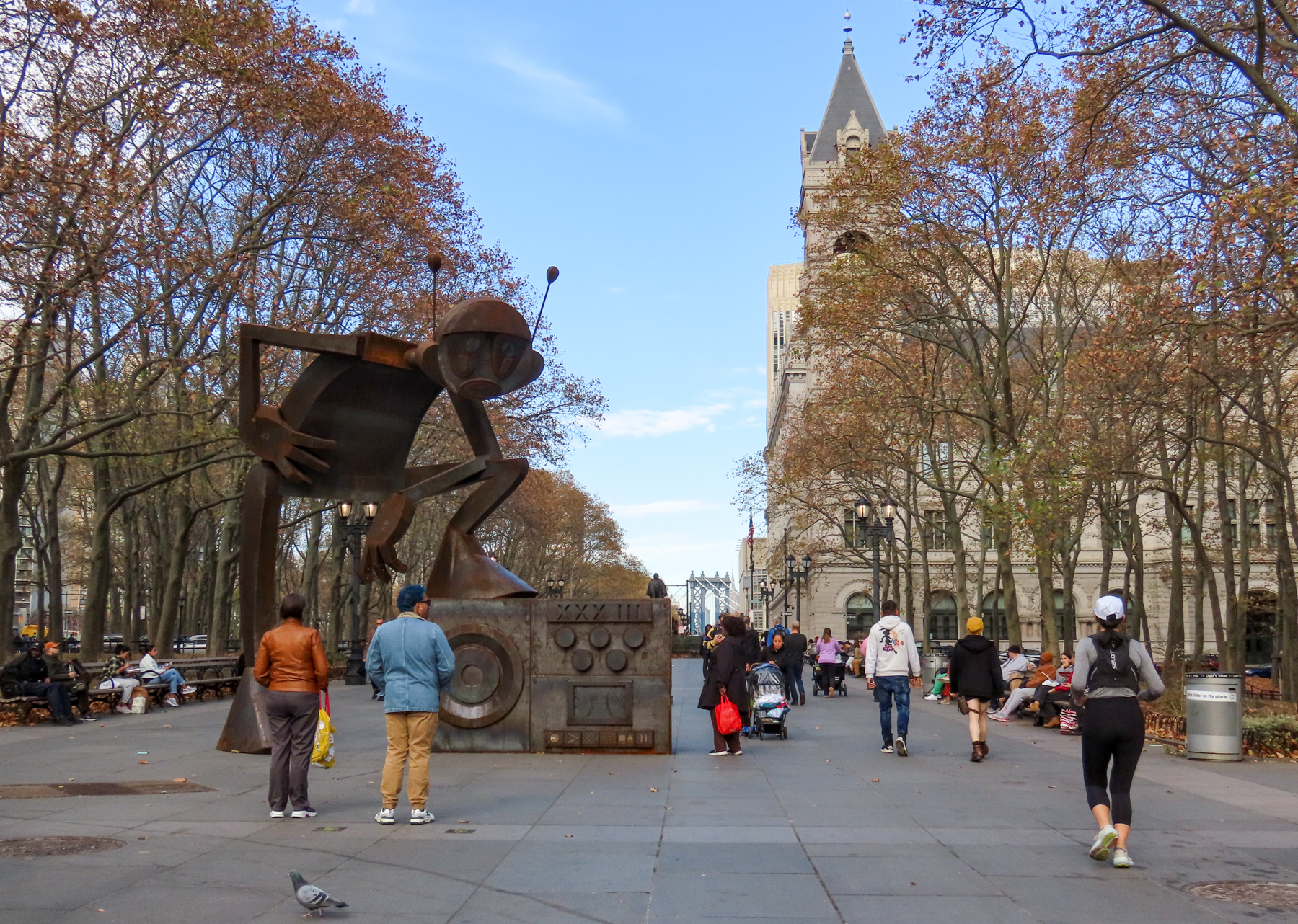

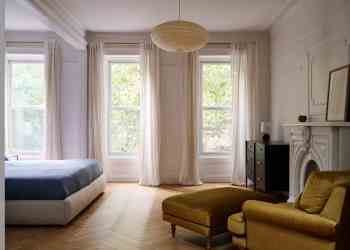


What's Your Take? Leave a Comment